
Theater of Marcellus Colosseum Rome Tickets
5/5 - (1 vote) The Theatre of Marcellus - as it is known in Italian - is a site that can be visited in Rome. The brainchild of Julius Caesar, it was completed and inaugurated by Augustus in 12BC who named it after his nephew Marcellus. Marcellus was the rightful successor of Augustus, but he had died unexpectedly a decade earlier.

Marcellus' Theater all you need to know about this unexpected Rome
The Theater of Marcellus is an ancient Roman theater in Rome's city center. Dating back from the I century AD, Marcellus' theater predates the Colosseum and has a lot in common with its more famous cousin. At first glance, first-time visitors to Rome may even mix up the two. It is not unusual to have people getting excited pointing at the.
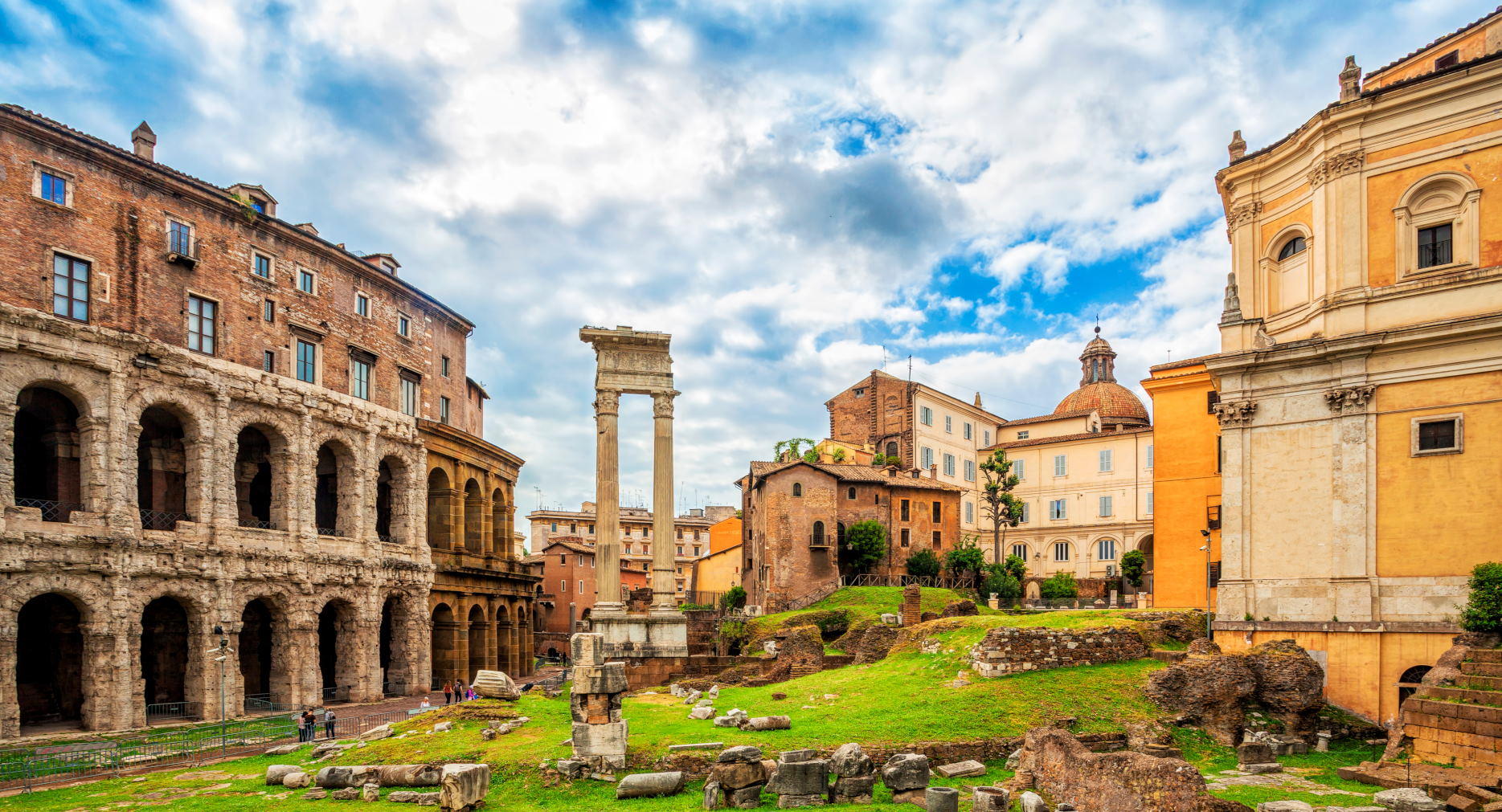
Theater of Marcellus Colosseum Rome Tickets
Illustration. by Chris Ludwig. published on 26 April 2012. Download Full Size Image. The remains of the Theater of Marcellus & Temple of Apollo Sosianus. The theater, started by Julius Caesar and completed by Caesar Augustus it was the largest theater in Rome seating an estimated 14,000+ people. Remove Ads.

Teatro di Marcello The Theater of Marcellus in Rome An American in Rome
Theatre of Marcellus. The Theater of Marcellus, which occupies a site between the Capitol and the Tiber, is the only one that can still be seen today. It was begun by Caesar and completed by Augustus in 11 BC, when he dedicated it to the memory of his nephew and heir Marcellus. The theater had a diameter of 130 meters, rose to a height of 30m.
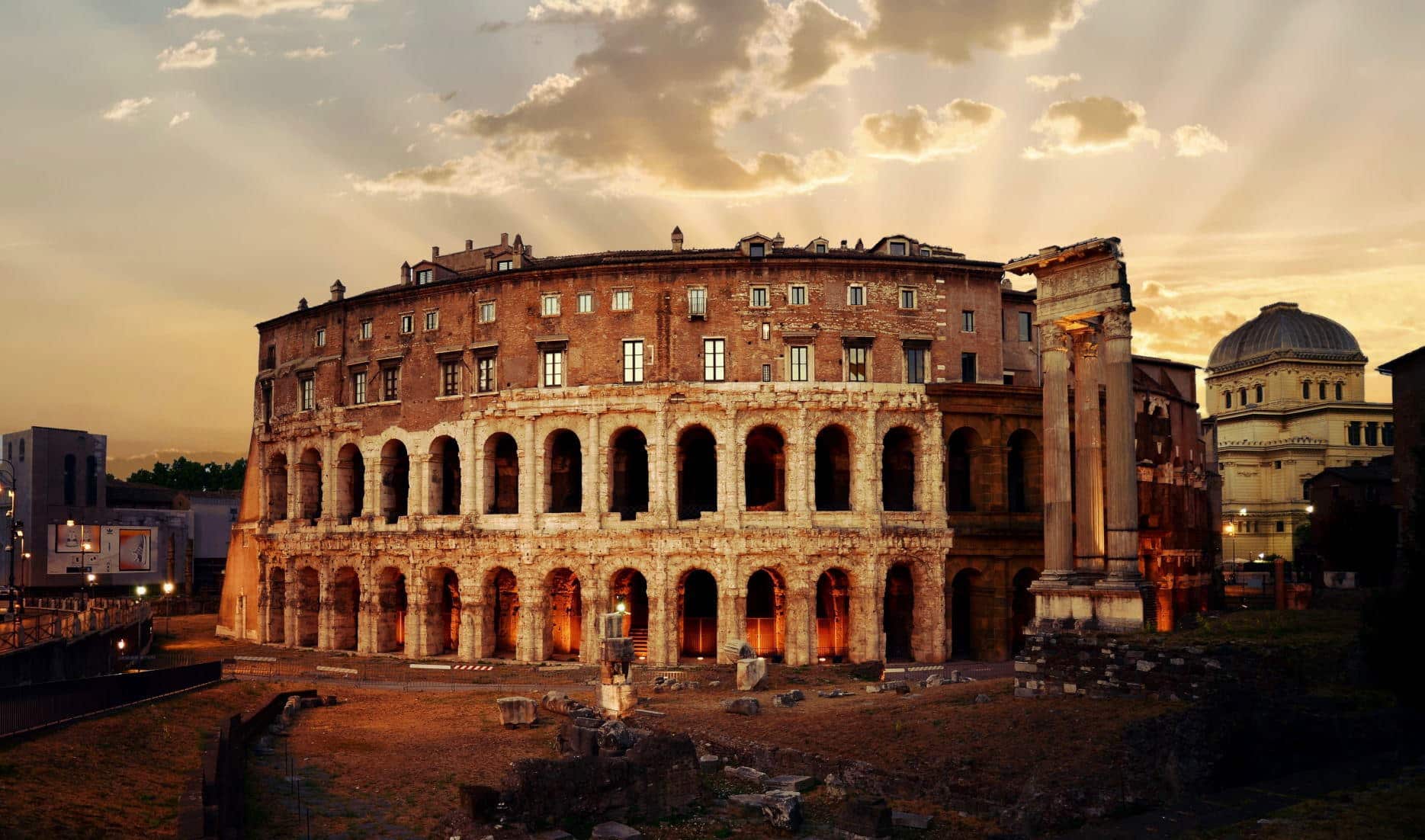
Theater of Marcellus Colosseum Rome Tickets
According to the ancient historian Livy, the Theatre of Marcellus was constructed on the site of an earlier theatre, built by Marcus Aemilius Lepidus. The theatre was dedicated to Augustus's own nephew and heir, Marcus Claudius Marcellus, who died at a young age. Built in a grand style, with three distinct columned levels, it is believed the.

Majestic Theater of Marcellus in Rome
Theatre of Marcellus was well preserved for its solid foundations that rest on a concrete slab cast on oak pilings that compress the clay soil. The only decorative elements of the facade were of theatrical masks, of enormous dimensions, carved in the round, in white marble of Luni (Carrara predominantly) recovered in fragments during the.
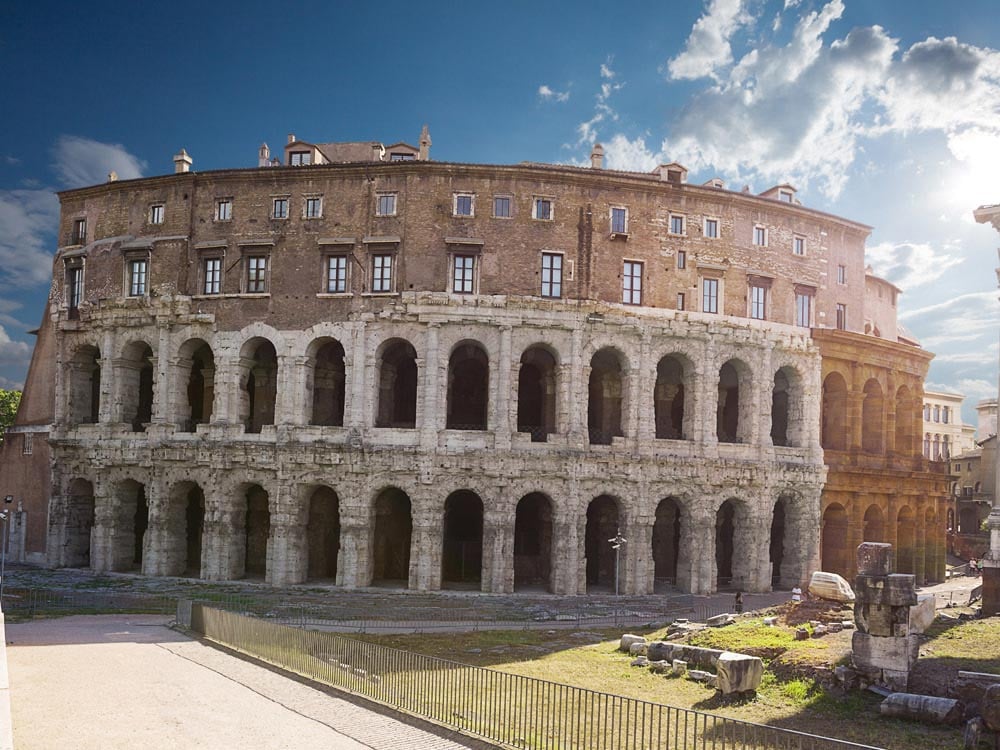
Information about Theatre of Marcellus Facts, Location, Best time to
Like geological strata laid bare to reveal the earth's development, the walls of the Theater of Marcellus bear witness to the various transformations of the ancient Roman monument. Begun by Julius Caesar and completed about 12 B.C. by Augustus, despoiled in the fourth century, fortified in the eleventh, and converted into a palace in the.

Theatre of Marcellus History, Pictures, useful information
The theatre was a memorial of Marcellus and dedicated in his name (Cass. Dio, Mon. Anc. locc. citt.; Liv. Epit. 138; Suet. Aug. 29; Plut. Marc. 30). In 17 B.C. the work of construction was so far advanced that part of the celebration of the ludi saeculares took place within the theatre (CIL vi. 32323. 157 ;1 EE viii. 233), but the dedication.

Marcellus' Theater all you need to know about this unexpected Rome
The Theatre of Marcellus, Rome. Theatre of Marcellus, in Rome, building begun by Julius Caesar and completed by Augustus in 13 bc. It was dedicated in the name of Augustus's nephew, Marcus Claudius Marcellus (42-23 bc ). According to Livy, it was built on the site of an earlier theatre erected by Marcus Aemilius Lepidus —to the west of.

Theatre of Marcellus, Rome (Illustration) Ancient History Encyclopedia
Managed by Blu Blood, who have over 30 years' experience, The Theatre of Marcellus showcases numerous international as well as local acts. Dance shows, comedy, musicals and plays have also created a lasting rapport with audiences over the years. Every empire craves quality entertainment. To ensure that the experience at the Theatre of.

THEATRE OF MARCELLUS An Ancient Theatre in Rome
The Theater of Marcellus. Written by: Kate Zusmann. The Theater of Marcellus (Teatro di Marcello) is a structure whose construction was started by Julius Caesar. It was finished by Augustus in 13 B.C. and dedicated to his favorite nephew Marcellus. The building is one of the ancient examples of entertainment venues important for Romans.
Theatre of Marcellus
The Theatre of Marcellus. The building was erected in Campo Marzio, in the place that tradition had consecrated to the scenic performances, connected with the temple of Apollo. The project was started by Julius Caesar and taken over by Augustus. Probably completed in 17 BC, Teatro di Marcello was dedicated in 13 or 11 BC to the memory of.
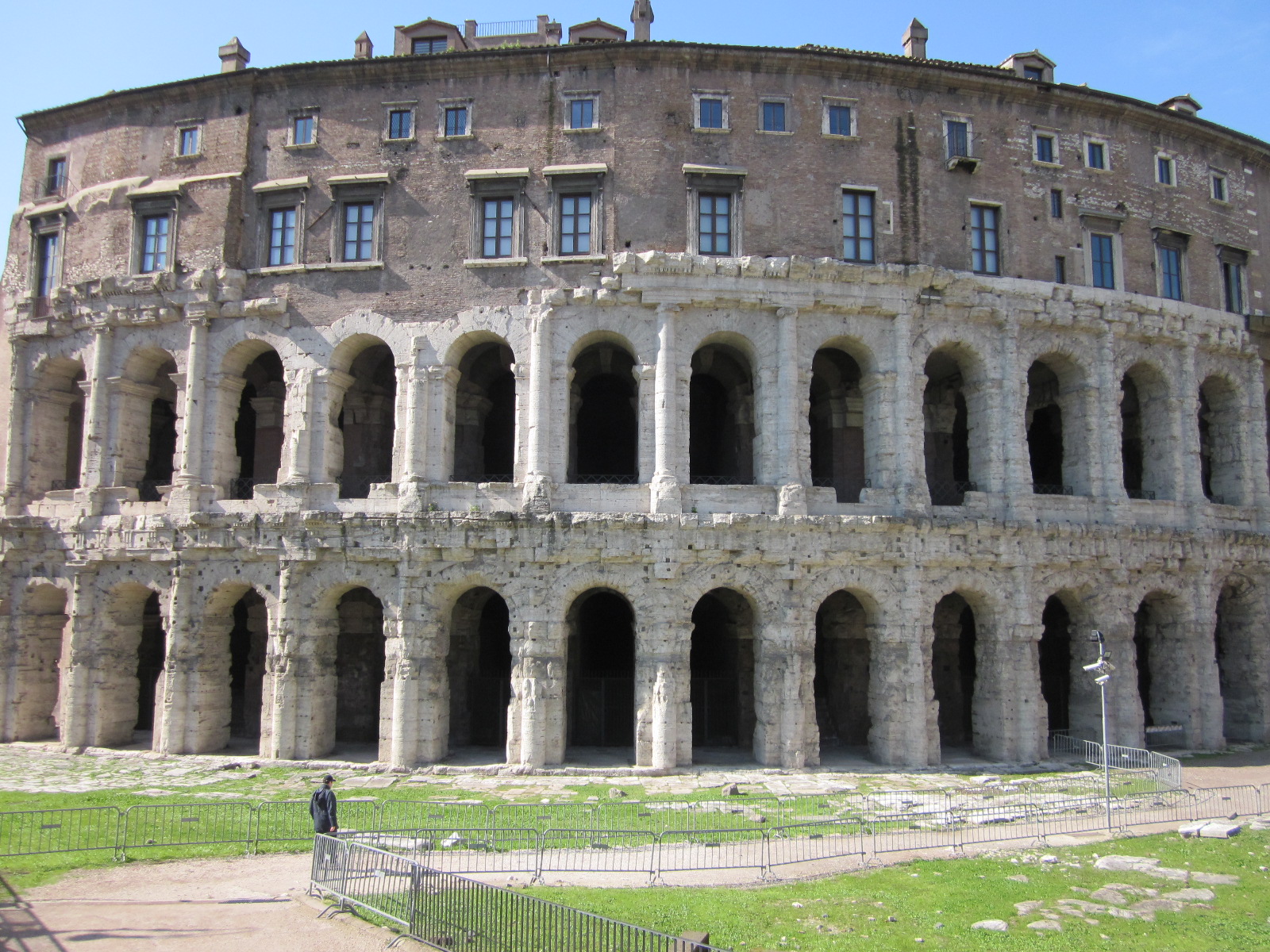
Sights of Rome The Theater of Marcellus
The emperor Augustus dedicated the theater in 13 BC to the memory of his nephew, son-in-law, and presumed successor 1, Marcus Claudius Marcellus. 2 Marcellus had died under uncertain circumstances ten years earlier at the age of 19 after serving in Spain for the Roman army with Augustus and Tiberius. His death, coming on the heels of outsize.
FileTheatre of MarcellusRome1.JPG Wikimedia Commons
The Theatre of Marcellus (Teatro Marcello), built in 13 BC, was the largest open-air theatre in Ancient Rome. If you think its facade looks alarmingly familiar, you are not wrong. The architecture and design of the theatre became standard across the Roman Empire and influenced many important buildings such as the Colosseum, which was built many.
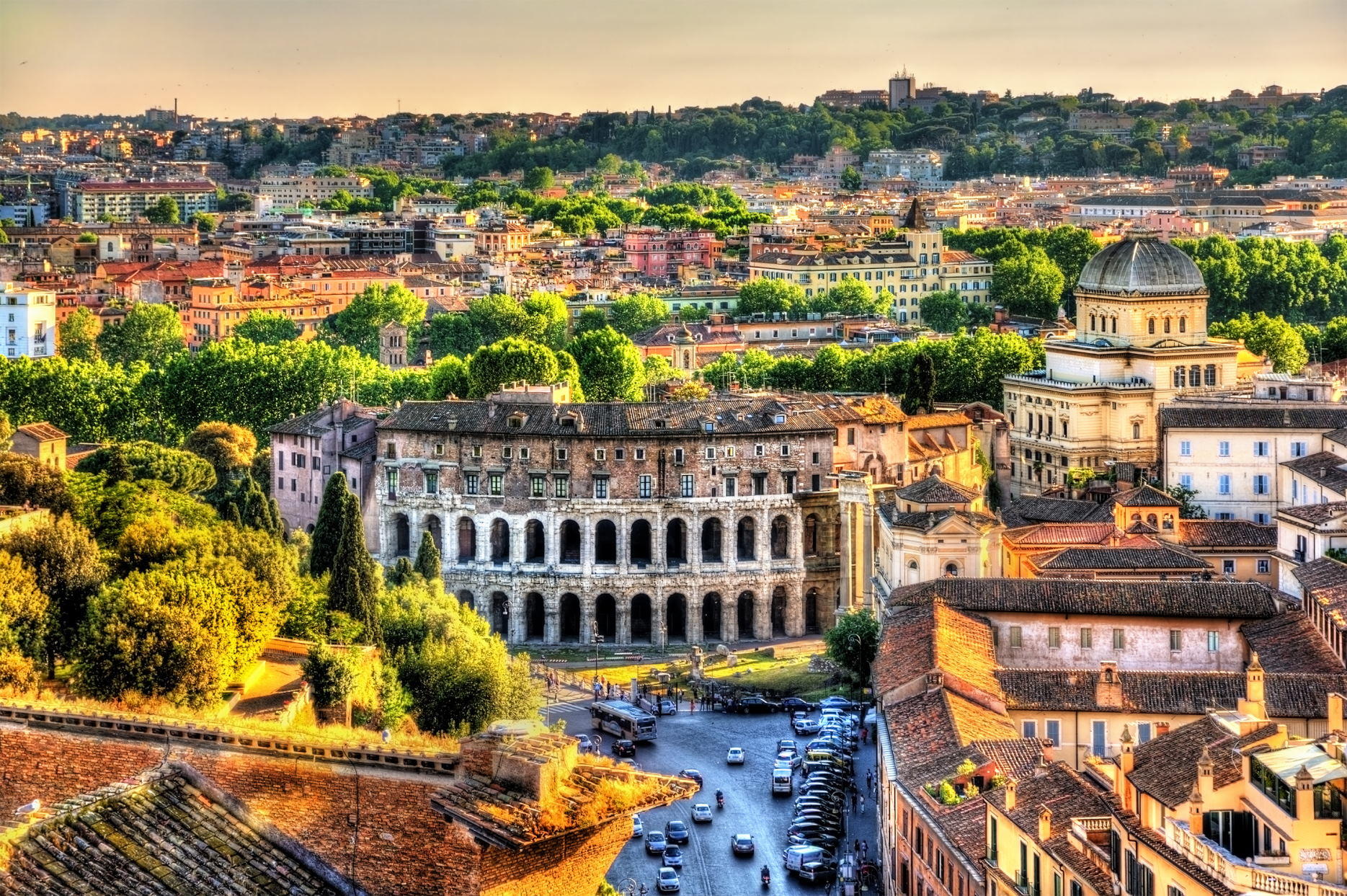
Theater of Marcellus Colosseum Rome Tickets
Theater of Marcellus was a Roman theatre, built in the 1st century BCE in the southern part of the Field of Mars in Rome.. The site for this object was already designated by Julius Caesar, his assassination in 44 BCE however, it caused the work to be interrupted.He resumed it by Octavian Augustus, dedicating the building to his prematurely deceased in 23 BCE nephew Marcus Claudius Marcellus.
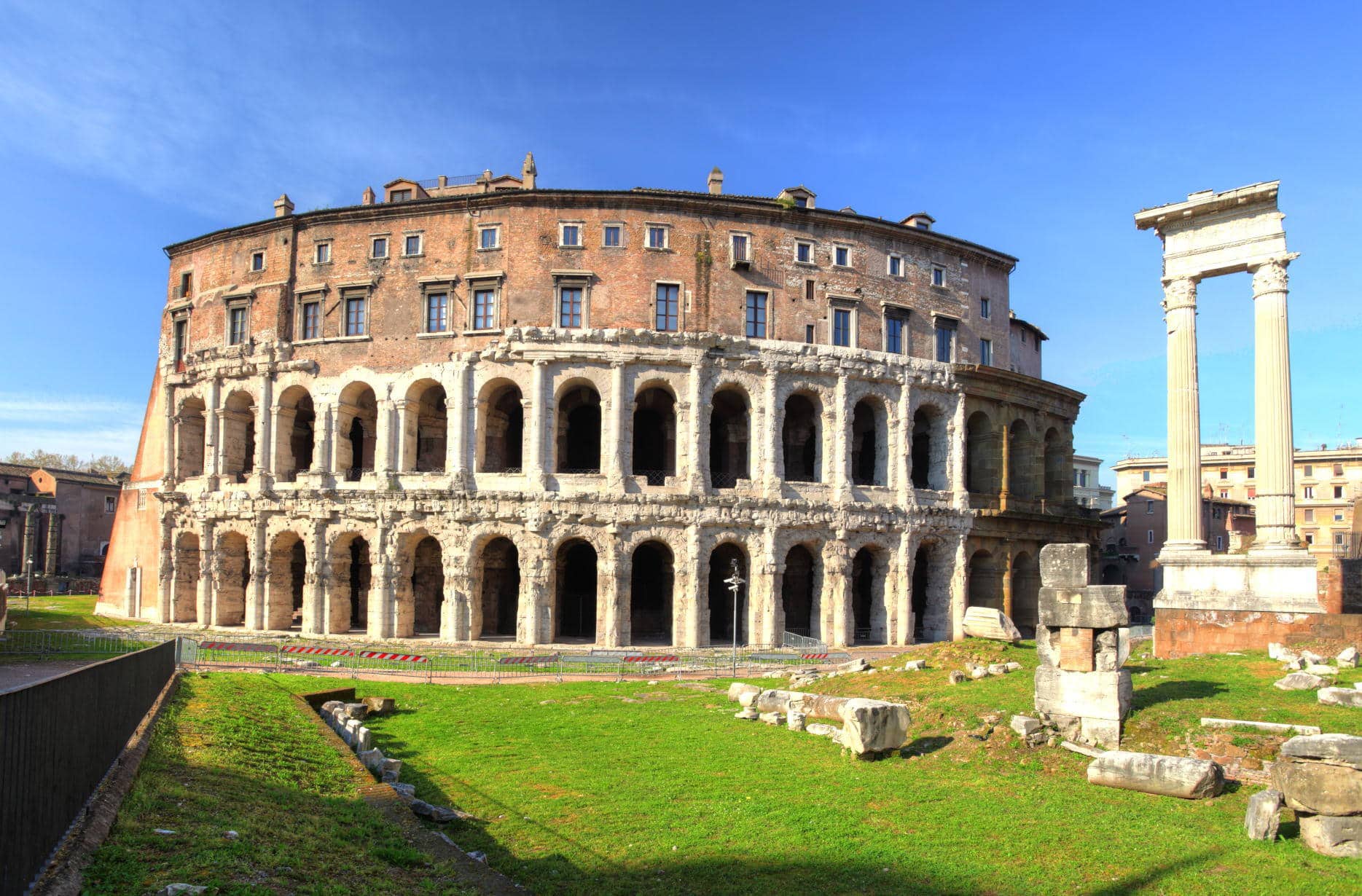
Theater of Marcellus Colosseum Rome Tickets
The theatre of Marcellus, near the Capitoline Hill, Rome.Begun under Julius Caesar, the project was completed under Augustus and the theatre was named after the son of Octavia who, before his death in 23 BCE, was Augustus' heir. Built in travertine stone it was the most important of Rome's three theatres at that time and had a capacity for around 20,000 spectators.